The analysis of the energy policy of nations is increasingly relevant due to the recent disruptions in energy production and distribution affected by the War in Ukraine and the Covid-19 pandemic.
Climatic conditions also directly influence the energy sector, from generation planning to the maintenance of energy distribution and transmission poles. This happens because in most parts of the world, the assets that make up the electricity sector are hostages to climate interference. Therefore, no matter how small the climate changes, they can have a positive or negative impact on meteorological variables and, consequently, on the planning and operation of world energy.
In this context, it is possible to observe this dilemma more sharply in the case of the European Union (EU) due to the interdependence between different member states, Russia and the strong influence of the sector on climate change, as well as the opposite.
It is important to understand the challenges and advances of Europe’s energy policy, because, in addition to climate change, that is, global warming, the EU is being harmed in the energy sector, as it is the largest consumer of natural gas in Russia.
It is clear that the discussion about climate change has changed the degree of urgency around the energy issue and, due to the war in Ukraine, the reality of energy insecurity ended up gaining even greater relevance in Europe, which has sought alternative energy sources, since it conditioned its external relations with Russia, in particular.
Therefore, Brussels claims that the energy supply crisis of 2022, intensified by the Russian invasion of Ukraine, reflects the fact that the 27 countries of the European Union must act quickly to reduce dependence on fossil fuels.
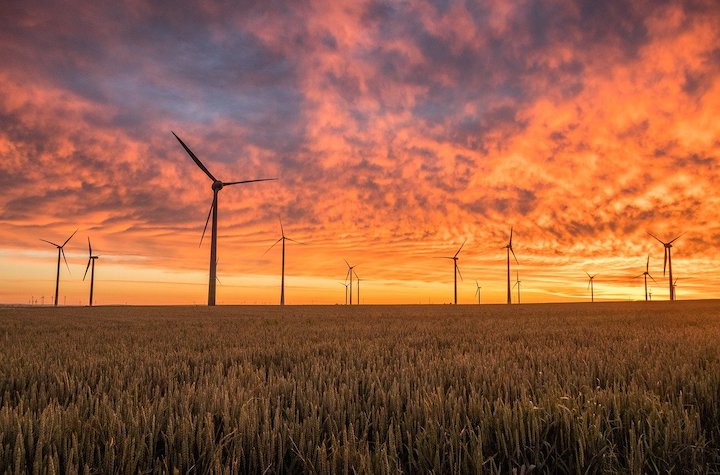
Access to energy seen from a strategic security perspective:
The Russian energy company Gazprom is responsible for most of the supply of natural gas to the European Union. This is because, under Russian legislation, only Gazprom is authorized to operate gas pipelines for export.
According to German public news network Deutsche Welle, around 43% of natural gas consumed in EU countries comes from Russia, which gives the country great bargaining power by threatening to raise the price of the product, and even lower the gas flow to Europe, taking into account that most EU countries are part of NATO, which is supporting Ukraine against Russia.
This maneuver leaves the Bloc hostage to Russian policies, which seriously compromises its energy security, reinforcing the urgent need for independence in the supply of affected countries.
This impasse causes a great insecurity of energy source in Europe. It must be taken into account that the diversification of the energy matrix has always been a European problem since, according to the European Environment Agency, fossil fuels continue to dominate the energy matrix of most countries in the union.
According to the Agency, around 77% of the average European’s energy needs are met with oil, natural gas and coal resources. Nuclear energy supplies 14% of these needs, while the remaining 9% are supplied by renewable sources.
As a result, the European Union aims to cut Russian gas imports by two-thirds, transforming its energy mix as Russia’s war in Ukraine continues to rage.
A European Commission energy spokesperson told CNBC that “following Gazprom’s earlier unilateral decision to stop supplying gas to several (EU) Member States and companies, and with the below-average level of its storage facilities of gas in Europe last year (2021), recent events remind us once again of Russia’s unreliability as an energy supplier”.
The spokesperson also states that these facts “reinforce our determination to achieve our REPowerEU goals of phasing out Russian fossil fuels. Russian coal and oil sanctions are coming into effect this year and with the REPowerEU Plan will be accelerated.” the deployment of homemade renewable energy, we will reduce energy use, we will switch to more reliable alternative suppliers than Russia.”
Access to energy from an economic perspective:
The price of energy is one of the most relevant factors in a country’s economy, as the value paid for this essential product will dictate the prices of the entire production chain in the country.
It is understood that the cost of energy affects a good part of the national economy, such as: transport; foods; it also affects the production of these foods, since the use of tractors and other machines are necessary for the harvest.
In this domino effect, inflation is also affected and, according to data from the Institute of Applied Economic Research (IPEA), the social classes most affected in Brazil, for example, are the lower and middle classes on a larger scale; also affecting domestic policies.
Therefore, whichever country is affected, high energy prices are negative and the consequences tend to be similar.
Taking the United States as an example, it is noted that it is a country that produces more oil than it consumes. However, as oil and gas is a commodity whose price is regulated in international markets, the price will inevitably rise in the same way.
In the case of Brazil, even with its huge oil production and Petrobras being a state-owned company, regardless of efforts to keep prices low, it will be a vain effort, since Brazilian oil is quoted on the international market, and in dollars.
So, a geopolitical conflict of the extent of what is happening between Ukraine and Russia, and the sanctions imposed on Russia has brought a lot of volatility to the price of oil, affecting even Brazil. Without taking into account, still, the depreciation of the real against the dollar today.
Therefore, if there is not some kind of government subsidy to lower the price so that it is in line with the costs of the respective countries, that government will be hostage to the international market.
Finally, it is necessary to consider how important it is for a country to have access to energy, but even better, to have access to cheap energy.
Access to energy seen from the perspective of sustainability and environmental protection:
One of the most essential discussions about the environment today is how to have energy security and still be sustainable.
A country can have energy security, it can have access to cheap energy, but it can be extremely polluting energy and incompatible with the well-being of the environment.
Having access to polluting energy can even affect the health and well-being of people who live around the production fields, even leading to some irreversible diseases.
So the goals of countries should be:
- Easy access to energy;
- Energy must be cheap;
- And it must be sustainable, with few greenhouse gas emissions.
How to reconcile energy security with the goals of reducing greenhouse gas emissions:
The War in Ukraine raised the importance of reconciling the balance between energy security and “clean” energy, as Russia is noted to be one of the largest oil and gas producers in the world.
Russia is one of the largest oil and gas producers in the world and has also become a member of OPEC+ (Organization of Petroleum Exporting Countries), which consists of the new agreement between the OPEC countries with the addition of Russia, to contain the production of oil and, thus, increase prices in the international market.
Therefore, the current situation has a great influence on the final price of oil and, consequently, of the fuels used on a large scale around the world.
In addition to the final price, the distribution of these energy matrices to Europe is affected, mainly, as this is the main continent dependent on Russian oil and gas. During the COVID-19 Pandemic, the price of oil has remained extremely low, unlike currently, in 2022.
– Short term
In the short term, the need is for the production of energy quickly and easily, however the most guaranteed and constant would be through hydrocarbons.
For this, it will be necessary to invest in infrastructure for these fuels, also in the production of liquefied natural gas (LNG) terminals, which are received via ships. Being able, therefore, to import from countries such as Norway, the United States and Qatar.
– Medium and long term
In the medium term, investment in nuclear energy could be a good option, taking the example of France.
The European Union has defined nuclear energy as one of the cleanest currently, despite containing some nuclear waste, it does not emit carbon dioxide or other greenhouse gases.
From there, you can start investing in sustainable energy, because if the country has independence based entirely on energies of this type – such as, for example, green hydrogen – it enjoys greater energy security, which is the initial objective.
With this type of energy, it will be possible to use it in air and maritime transport, where electrification is not yet feasible. It is also possible to electrify the entire car fleet and even electrify residential heating.
The future trend of seeking a balance between energy security and climate goals
The conflict in Ukraine has accelerated investment in renewable energy in the medium and long term due to the need for Europe to become independent from Russia in energy terms. However, it also increased the bloc’s investment in “dirty” energy in the short term to increase its energy resilience.
Not only from Russia, but the EU needs independence in importing energy from Middle Eastern countries as well.
At the beginning of this process, the prices of energy use may increase in some countries, compared to the use of fossil fuels, but in the medium and long term, these changes will be better for the climate.
An example of this is Germany, which is reactivating its coal plants, which are the most polluting there are, to compensate for the reduction in Russian gas. It must be taken into account that gas is a pollutant, but it cannot be compared to coal.
In short, each country will have its own energy transition. According to what each one can and is able to do, according to their social needs.
The war ended up accelerating a process that was already underway, not only in Europe but in the United States, and the trend is that this acceleration will provide better prospects for the climate in the medium and long term with a step backwards in the short term. Therefore, at the beginning it will be a painful process for the environment, but it will be better in the future.

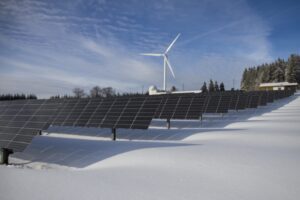











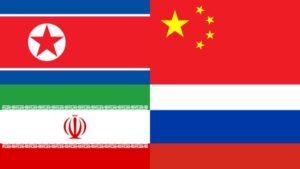
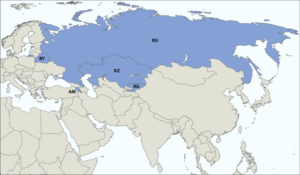

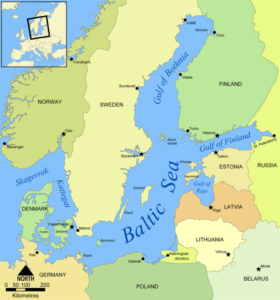




[…] with others political programs for clean energy the various international actors did not present as complete budgets for the green initiative as […]
[…] and in order for global warming, which is already causing numerous problems such as melting, climate change, and ecological imbalance, to be limited to 1.5°C, they must not develop any further until […]
[…] However, with the victory of former President Luiz Inácio Lula da Silva in the 2022 elections, Brazil is hopeful of reclaiming its previous international prestige as Lula has pledged to prevent the destruction of the Amazon and to act aggressively against the climate changes. […]
[…] investment in the security of submarine cables is becoming an extremely important agenda in the strategic and national defense […]
[…] Unlike authoritarian governments, which can impose top-down projects, democracies shy away from drastic climate protection policies. Due to their consensus-based decision-making processes, democracies struggle to ensure rapid and effective climate protection. […]
[…] However, in addition to these functions, satellites are also extremely important for the national security of European countries, therefore, for regional security. […]